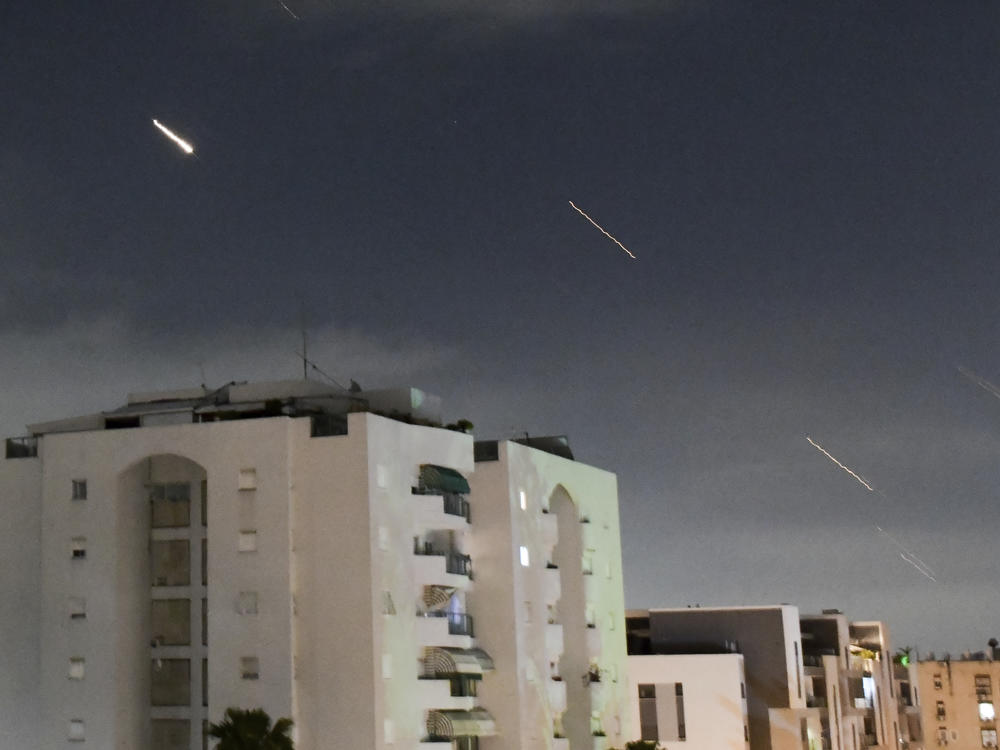Section Branding
Header Content
Iran's attack on Israel is a major escalation. What comes next for the region?
Primary Content
You're reading the Consider This newsletter, which unpacks one major news story each day. Subscribe here to get it delivered to your inbox, and listen to more from the Consider This podcast.
1. Iran launched a barrage of more than 300 drones and missiles at Israel over the weekend.
Here's what we know about the attack:
- U.S. intelligence agencies and even President Biden had been warning an attack was imminent.
- There were no major civilian casualties or damage to infrastructure due to the attack, according to Israel Defense Forces.
- Nearly all of the weapons were intercepted by Israel and its allies, including the U.S.
- A few of the Iranian ballistic missiles made it through the defenses, severely injuring a 7-year-old girl and slightly damaging a military base in southern Israel, according to Israeli officials.
On Sunday, a senior Iranian military official said Iran's "operation" against Israel had ended and there would be no more attacks coming, according to Iranian state media.
2. This was in retaliation to Israel's deadly attack earlier this month.
Iran said it launched its attack against Israel in response to an airstrike earlier this month that hit Iran's consulate in Syria and killed seven Iranian military officials, including two generals.
Israel neither confirmed nor denied responsibility for the Syria strike, though the Pentagon said Israel was responsible.
Sima Shine is a former senior Israeli intelligence official. She now runs the Iran desk at the Institute for National Security Studies in Tel Aviv. She says this attack is "crossing the Rubicon" from the point of view of Iran.
"Iran never before did anything similar to that. I think it's not only that it's unprecedented. It's also taking into account that... in spite of everybody telling the Iranians not to do it, they decided to do it and they took it upon themselves – the responsibility for escalation."
3. What we know so far about Israel's potential response.
An Israeli military spokesperson said on Sunday that leaders had "approved operational plans for both offensive and defensive action," without going into further detail.
Shine sees two options for an Israeli response, one that looks possible, and one that she thinks would be more wise. Given that most of the missiles were intercepted and there wasn't major damage, Shine says Israel could take the opportunity to de-escalate or postpone the response.
"...and not do it while we are in Gaza and fighting on the north and everything. We could choose the better timing. But from what I hear – and I say it's only, you know, open sources – it looks as if there is a feeling in the army, in the security establishment, that Israel cannot afford itself not to retaliate."
Shine believes the Iranian regime doesn't want a war, and she hopes this doesn't deteriorate into a full scale war because of how it will impact the region. "I think the [Iranian] regime knows that its economic situation is terrible... and [a] big percentage of the population does not like the regime and I think they don't want the war," she said.
"But many times in history, no one wanted the war. And still, miscalculation escalated to a war."

